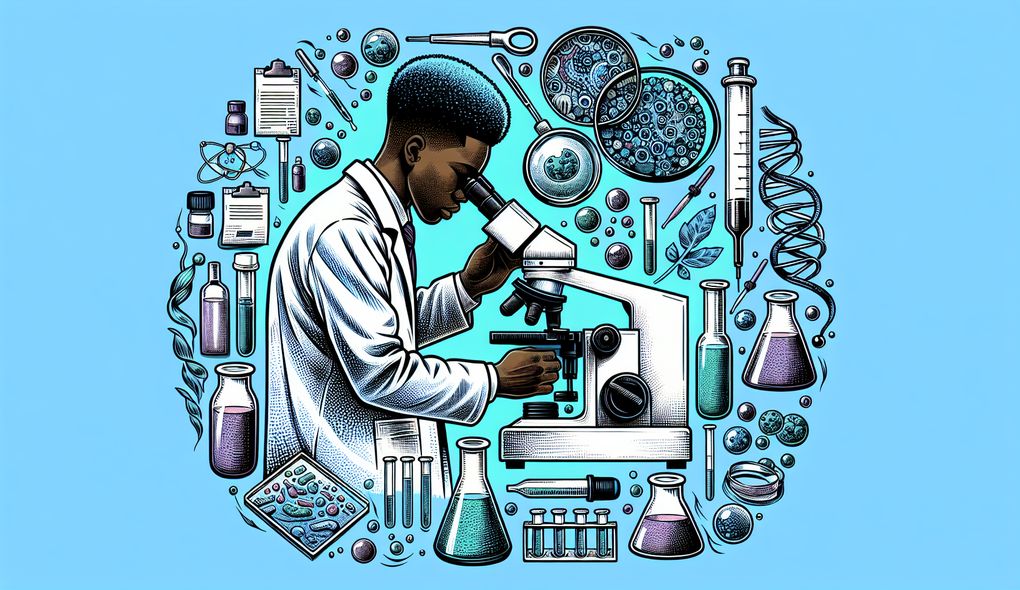Can you provide an example of a time when you had to solve a complex problem related to water analysis?
SENIOR LEVEL

Sample answer to the question:
Sure! One example of a complex problem I faced related to water analysis was when I was working on a project to assess the impact of industrial waste on a local water source. We had collected water samples from different points along the river and conducted various tests to determine the chemical composition and level of contamination. However, we noticed some inconsistencies in the test results. To solve the problem, I conducted a thorough review of the testing procedures and identified that there was an error in the calibration of the equipment. I recalibrated the instruments and repeated the tests to ensure accurate results. Additionally, I reached out to experts in the field to verify the findings and consulted with my team to develop strategies for reducing the contamination. Through these efforts, we were able to identify the sources of pollution and propose solutions to mitigate the impact on the water quality.
Here is a more solid answer:
Certainly! Let me share a more comprehensive example of a complex problem I encountered in water analysis. During a research project on the impact of pesticide contamination in groundwater, I encountered a situation where the test results were inconclusive due to multiple factors. Firstly, the presence of organic matter in the groundwater sample was interfering with the accuracy of the tests. To address this, I employed a filtration technique to remove the organic matter before conducting the analysis. Secondly, the pesticide concentrations were too low to be detected by the standard methods. To overcome this challenge, I collaborated with a colleague who had expertise in advanced analytical techniques, and we developed a modified method to enhance the sensitivity of the tests. This involved pre-concentration of the samples and utilization of a highly sensitive detection technique. By implementing these solutions, I was able to obtain accurate and reliable results, allowing for a comprehensive assessment of the pesticide contamination and its potential impact on the environment.
Why is this a more solid answer?
The solid answer expands upon the basic answer by providing additional details about the specific complex problem and addressing the candidate's problem-solving skills, analytical skills, attention to detail, and ability to work with complex data. It also demonstrates the candidate's collaboration and ability to think outside the box to overcome challenges.
An example of a exceptional answer:
Absolutely! Let me share an exceptional example of a complex problem I encountered during a water analysis project. I was leading a team that was tasked with assessing the water quality of a river system that was heavily impacted by industrial activities. The scope of the project was extensive, requiring the collection of water samples from multiple locations along the river and comprehensive analysis of various parameters, including heavy metals, organic compounds, and microbiological indicators. While conducting the analysis, we encountered a significant challenge in interpreting the data due to the presence of intricate interactions between different contaminants. To tackle this issue, I implemented a multidimensional data analysis approach, utilizing advanced statistical methods and data visualization techniques. This enabled us to identify complex correlations and patterns within the dataset, leading to a deeper understanding of the pollution sources and their impact on the water quality. Furthermore, I coordinated with experts from universities and research institutions to validate our findings and gain valuable insights into emerging contaminants and analytical techniques. Our comprehensive analysis and recommendations played a pivotal role in guiding the development of effective pollution control measures and policies in the region.
Why is this an exceptional answer?
The exceptional answer goes above and beyond by providing a more detailed example of a complex problem related to water analysis. It highlights the candidate's leadership skills, analytical expertise, and ability to collaborate with experts. The answer also demonstrates the candidate's ability to leverage advanced statistical methods and data visualization techniques to solve complex problems in water analysis.
How to prepare for this question:
- Familiarize yourself with various water analysis techniques, methods, and equipment commonly used in the industry.
- Research and stay updated on the current challenges and advancements in the field of water analysis, especially related to the job requirements mentioned in the job description.
- Reflect on your previous experiences working on water analysis projects and identify specific instances where you encountered complex problems and successfully resolved them.
- Practice explaining the steps you took to solve the complex problem in a clear and concise manner, highlighting your analytical and problem-solving skills.
- Emphasize your ability to work with complex data and attention to detail, as these are crucial skills for a Water Quality Analyst role.
What are interviewers evaluating with this question?
- Analytical skills
- Problem-solving skills
- Attention to detail
- Ability to work with complex data

